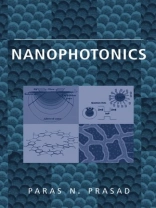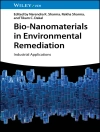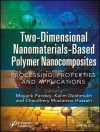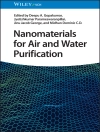The only comprehensive treatment of nanophotonics currently
available
Photonics is an all-encompassing optical science and technology
which has impacted a diverse range of fields, from information
technology to health care. Nanophotonics is photonic science and
technology that utilizes light-matter interactions on the
nanoscale, where researchers are discovering new phenomena and
developing technologies that go well beyond what is possible with
conventional photonics and electronics. These new technologies
could include efficient solar power generation, high-bandwidth and
high-speed communications, high-capacity data storage, and
flexible- and high-contrast displays. In addition, nanophotonics
will continue to impact biomedical technologies by providing new
and powerful diagnostic techniques, as well as light-guided and
activated therapies.
Nanophotonics provides the only available comprehensive treatment
of this exciting, multidisciplinary field, offering a wide range of
topics covering:
* Foundations
* Materials
* Applications
* Theory
* Fabrication
Nanophotonics introduces students to important and timely concepts
and provides scientists and engineers with a cutting-edge
reference. The book is intended for anyone who wishes to learn
about light-matter interactions on the nanoscale, as well as
applications of photonics for nanotechnology and nanobiotechnology.
Written by an acknowledged leader in the field, this text provides
an essential resource for those interested in the future of
materials science and engineering, nanotechnology, and photonics.
Sobre el autor
PARAS N. PRASAD is the SUNY Distinguished Professor of Chemistry, Physics, Electrical Engineering, and Medicine; the Samuel P. Capen Chair; and the Executive Director of the Institute of Lasers, Photonics, and Biophotonics at the University of Buffalo. Professor Prasad has published over 450 scientific papers and lectured worldwide on nanophotonics. He has offered a multidisciplinary course on nanophotonics at Buffalo as well as a short course on this subject at the SPIE professional society meetings. In May 2001, the U.S. Department of Defense, under its nanotechnology initiative, chose the Institute of Lasers, Photonics, and Biophotonics in Buffalo to lead a comprehensive multidisciplinary program in Nanophotonics involving a world-class consortium of researchers at the University of California at Berkeley, Massachusetts Institute of Technology, the University of Washington, and Yale University.












